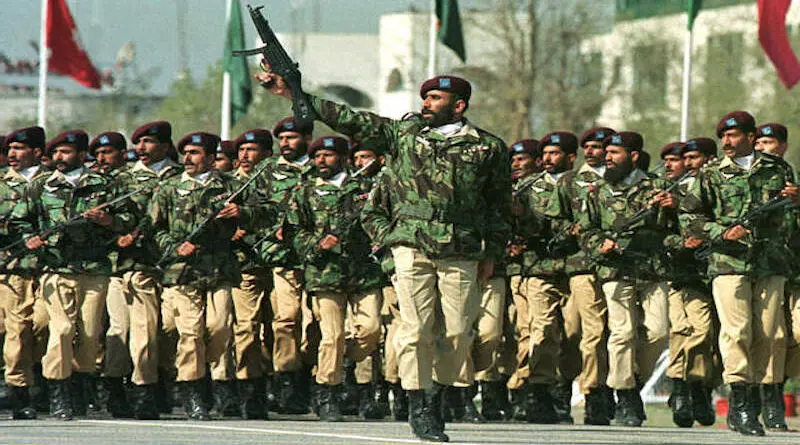Civil-Military Discord In Pakistan: A Precarious Balancing Act – OpEd
The persistent tensions between Pakistan’s political class and the military establishment have escalated into an alarming trend, threatening institutional harmony and national cohesion. Politicians openly criticizing the armed forces have become a norm, undermining civil-military relations and adding to the country’s volatility.
Historically, Pakistan has witnessed a power struggle between elected representatives and the military, each vying for dominance over national policy. However, recent trends suggest a sharp increase in public denunciation of the armed forces, painting them as an impediment to democratic governance.
From opposition leaders to government officials, allegations against the military’s role in politics have surfaced in mainstream discourse, often amplified through social and electronic media. The military, traditionally seen as Pakistan’s most disciplined and organized institution, is now regularly at the receiving end of scathing critiques. These criticisms have ranged from accusations of political engineering to economic mismanagement, all of which have had serious implications for national stability. While constructive dialogue on institutional roles is healthy for democracy, outright antagonism and vilification are detrimental to the country’s strategic interests.
The issue is further complicated by the fragmented nature of Pakistan’s political landscape. With multiple parties jostling for power, the blame game against state institutions, including the military, has become a convenient political tool. This tactic not only weakens national institutions but also fuels uncertainty, making governance an uphill battle. As the political elite continues to engage in mudslinging, the focus on pressing national issues such as economic revival, social development, and internal security is severely compromised.
Historically, Pakistan’s civil-military relations have fluctuated between cooperation and confrontation. The role of the military in national governance has been a subject of intense debate, with proponents arguing that its involvement ensures stability, while critics see it as overreach. However, reducing a complex relationship to mere vilification ignores the broader structural issues within Pakistan’s governance model. A functioning democracy necessitates synergy between all state organs, rather than perpetual antagonism.
Furthermore, the rapid spread of digital media has exacerbated the polarization between political and military institutions. Sensationalized rhetoric and unverified claims have blurred the lines between factual reporting and politically motivated narratives. This dynamic has made it increasingly difficult to foster a balanced discourse on the role of the armed forces within a democratic framework. Instead of leveraging military-bashing as a political strategy, Pakistan’s leaders must focus on strengthening democratic institutions and creating a cohesive national vision.
One of the biggest risks associated with this anti-military discourse is the erosion of institutional trust. If the public perceives the military as a liability rather than an asset, national unity may suffer. Pakistan faces a multitude of challenges, from economic crises to security threats, and navigating these difficulties requires collective effort rather than division. Countries that have successfully transitioned to stable democracies have done so by maintaining constructive civil-military relations rather than engaging in hostility.
A prime example of how excessive political infighting can harm national institutions is seen in countries that failed to consolidate democracy due to institutional erosion. A divided national front allows external adversaries to exploit internal weaknesses, further exacerbating instability. Given Pakistan’s geostrategic position, its internal unity is paramount. The country cannot afford political fragmentation at a time when economic recovery and national security should be the topmost priorities.
Addressing civil-military discord requires institutional maturity and responsible leadership. Political actors must engage in policy-driven discussions rather than resorting to inflammatory rhetoric. Similarly, the military must acknowledge its constitutional boundaries and ensure that its involvement in governance remains within its prescribed role. Strengthening democratic institutions, rather than weakening them through unnecessary conflicts, is the only viable path forward.
A national reconciliation effort is needed, one that encourages dialogue between political leaders and military officials. Establishing institutional mechanisms for consultation and conflict resolution can help bridge the gap between civilian and military leadership. Additionally, strengthening democratic governance through electoral transparency, parliamentary accountability, and judicial independence can serve as crucial steps toward institutional equilibrium. The challenges ahead require a united front, not internal division, and fostering institutional harmony is the first step toward ensuring long-term national stability.

